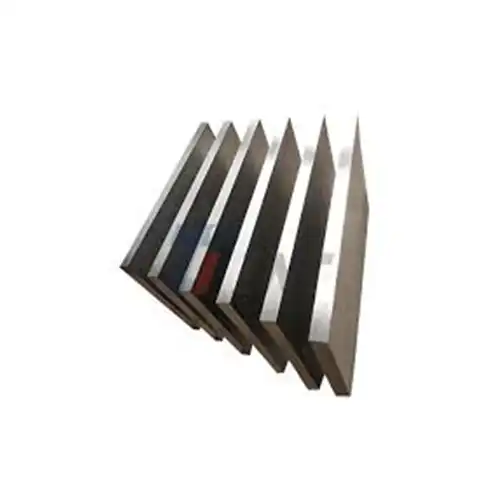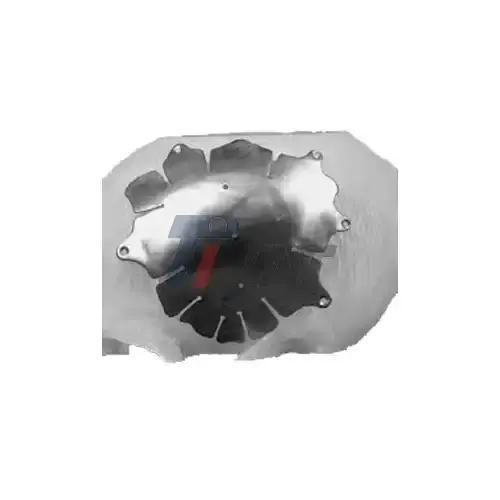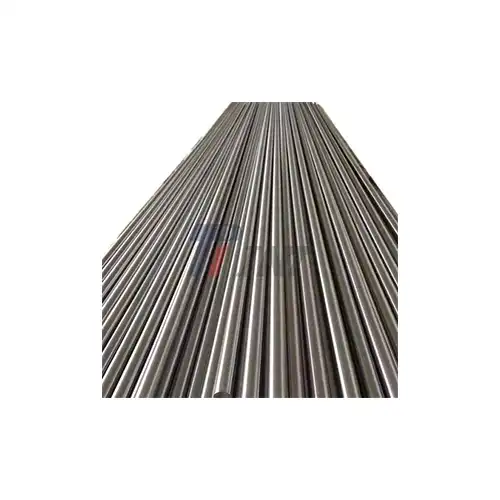How to Care for Your Titanium Plate After Brain Surgery?
 2025-06-06 15:21:53
2025-06-06 15:21:53
Undergoing brain surgery is a significant medical event, and proper post-operative care is crucial for a smooth recovery. If you've had a titanium plate inserted during your brain surgery, you might be wondering about the specific care requirements. This comprehensive guide will walk you through the essential steps to care for your titanium plate head after brain surgery, ensuring optimal healing and minimizing complications.
Understanding Your Titanium Plate Implant
Before delving into care instructions, it's important to understand what a titanium plate is and why it's used in brain surgery. Titanium plates are biocompatible implants used to stabilize the skull after certain types of brain surgeries. These plates are typically made from high-quality medical-grade titanium, known for its strength, durability, and compatibility with the human body.
Titanium is the material of choice for many medical implants due to its unique properties. It's lightweight yet strong, resistant to corrosion, and doesn't interfere with imaging technologies like MRI or CT scans. This makes titanium ideal for long-term implantation in the body, including as cranial plates after brain surgery.
The titanium plate serves several crucial functions post-surgery:
- It protects the brain by covering the surgical site
- It supports proper skull healing
- It helps maintain the shape of the skull
- It reduces the risk of infection
|
|
|
Immediate Post-Operative Care for Your Titanium Plate
The days immediately following your brain surgery are critical for your recovery. Here are some key points to remember about caring for your titanium plate head after brain surgery during this period:
- Wound Care: Your surgical site will be covered with a sterile dressing. It's crucial to keep this area clean and dry. Follow your surgeon's instructions carefully regarding when and how to change the dressing. Typically, you'll need to keep the incision site dry for several days post-surgery.
- Pain Management: You may experience some discomfort around the titanium plate. Your doctor will prescribe appropriate pain medication. It's important to take these as directed and not to exceed the recommended dosage.
- Rest and Position: Adequate rest is crucial for healing. When lying down, keep your head elevated slightly to reduce swelling. Use pillows to support your head and neck comfortably.
- Restricted Activities: Avoid strenuous activities, bending, or lifting heavy objects. These can increase pressure in your head and interfere with healing.
- Hygiene: Once your doctor gives you the go-ahead, you can gently wash your hair and scalp. Use mild, unscented shampoo and lukewarm water. Be extra careful around the incision site.
- Diet: A nutritious diet rich in proteins, vitamins, and minerals can support healing. Stay hydrated by drinking plenty of water, unless otherwise instructed by your doctor.
- Monitoring: Be vigilant for any signs of infection or complications. These may include increased pain, redness, swelling, fever, or unusual discharge from the incision site. If you notice any of these symptoms, contact your healthcare provider immediately.
Long-Term Care and Considerations for Your Titanium Plate
As you progress in your recovery, the care for your titanium plate head after brain surgery will evolve. Here are some long-term considerations:
- Follow-up Appointments: Attend all scheduled follow-up appointments with your neurosurgeon. These visits allow your doctor to monitor your healing progress and address any concerns.
- Physical Activity: Gradually increase your activity levels as advised by your healthcare team. However, you may need to avoid contact sports or activities with a high risk of head injury permanently.
- Sun Protection: The skin over your titanium plate may be more sensitive to sunlight. Always use a high-SPF sunscreen on your scalp, especially if the area is exposed.
- Temperature Sensitivity: Some patients report increased sensitivity to temperature changes in the area of the titanium plate. Be mindful of this when exposing your head to extreme hot or cold temperatures.
- Lifestyle Adjustments: Depending on the location and extent of your surgery, you might need to make some lifestyle adjustments. These could include changes to your work environment or daily routines to accommodate any lingering effects of the surgery.
- Metal Detectors: Your titanium plate head after brain surgery may set off metal detectors. Consider carrying a medical alert card or letter from your doctor explaining your implant.
- Future Medical Procedures: Always inform healthcare providers about your titanium plate before any medical procedures, especially those involving the head or neck area.
- Ongoing Monitoring: While titanium plates are designed for long-term use, it's important to stay vigilant. Report any unusual symptoms or concerns to your doctor promptly.
- Mental Health: Recovery from brain surgery can be emotionally challenging. Don't hesitate to seek support from mental health professionals if you're struggling with anxiety, depression, or adjustment issues.
Living with a titanium plate after brain surgery may require some adjustments, but with proper care and attention, most patients can return to their normal activities. The resilience of the human body, combined with the durability of titanium implants, often leads to excellent long-term outcomes.
Conclusion
In conclusion, caring for your titanium plate head after brain surgery involves a combination of immediate post-operative care and long-term considerations. By following your doctor's instructions, staying vigilant for any changes, and making necessary lifestyle adjustments, you can ensure the best possible outcome from your surgery. Remember, your healthcare team is there to support you throughout your recovery journey. If you have any questions or concerns about your titanium plate or your recovery process, don't hesitate to reach out to them.
For more information about high-quality medical titanium products used in neurosurgery and other medical fields, you can contact experts at export@tiint.com. They can provide detailed information about the latest advancements in medical titanium technology and how it's improving patient outcomes in brain surgery and beyond.
References
1. Sharma, S. D., et al. (2015). Titanium Cranioplasty: A New Era in Skull Reconstruction. Journal of Craniofacial Surgery, 26(7), 2155-2157.
2. Yadla, S., et al. (2011). Effect of early surgery, material, and method of flap preservation on cranioplasty infections: A systematic review. Neurosurgery, 68(4), 1124-1130.
3. Williams, L. R., et al. (2016). Complications of cranioplasty following decompressive craniectomy: analysis of 62 cases. Neurosurgical Focus, 40(6), E9.
4. Honeybul, S., & Ho, K. M. (2016). How "successful" is calvarial reconstruction using frozen autologous bone? Plastic and Reconstructive Surgery, 137(1), 192-201.
5. Cabraja, M., et al. (2009). Long-term results following titanium cranioplasty of large skull defects. Neurosurgical Focus, 26(6), E10.












_1752463076575.webp)
_1751956094730.webp)
_1750668405487.webp)




